|
How doth it appear that there is a God? The very light of nature in man, and the works of God, declare plainly that there is a God; (Rom. 1:19–20, Ps. 19:1–3, Acts 17:28) but his word and Spirit only do sufficiently and effectually reveal him unto men for their salvation. (1 Cor. 2:9–10, 2 Tim. 3:15–17, Isa. 59:21) Below are the Irish hare, to the siamese fighting fish, to the Bearded Vulture, Bleeding Hearts plant and the lords and ladies Good morning one an all,
In preparation for preaching through the Westminster Larger Catechism (WLC) coming this September I have been gathering material, making notes and generally trying to get my head round how to preach using the framework of the WLC without simply doing an exegesis on the Catechism that will be of benefit to us all. One of those things that I came across was published in this years ‘Blue Book’.1 In the report of the General Council Section 2 under the Doctrine Committee there was a report on what are the fundamentals of the reformed faith.2 A large part of what follows is taken directly from that report. As the Presbyterian Church in Ireland The Westminster Confession of Faith and Westminster Shorter and Larger Catechism are accepted as subordinate standards, and they serve as a bond of union for members of the Church on certain important points of doctrine and worship. The statements of the Confession are not the last word on any of these important truths. The Word of God as set forth in the Scriptures of the Old and New Testament is ‘our only infallible rule of faith and practice’. To lay out the doctrines of the Christian faith, the Church universal has long used a threefold resource: the Apostles’ Creed; the Ten Commandments; and the Lord’s Prayer. For the Presbyterian Church in Ireland to set out its particular convictions about faith and order in the same way is especially appropriate, given how the Westminster Larger Catechism and Confession of Faith, among our subordinate standards, explain the fundamental doctrines. Beginning with the doctrine of Scripture, and some other important preliminaries, they go on to explore and expound key matters for Christian faith that emerge from the Apostles’ Creed, Ten Commandments and Lord’s Prayer, as the following Table shows in detail: columns four and five list relevant chapters of the Larger Catechism and Confession of Faith respectively. [This Table significantly reflects another demonstrating ‘[s]ubstantial agreement of Creed and Catechism’ found in John R. Bower (ed.), The Larger Catechism: A Critical Text and Introduction (Grand Rapids, 2010), 23.] 1 If any of you are unaware of what the ‘Blue Book’ is, it is the Annual Reports of our church that are published before each General Assembly commonly referred to as the ‘Blue Book’ because it’s surprisingly enough a blue book 2 Doctrine Committees updated Statement of Faith and Order P26 Minutes 2023
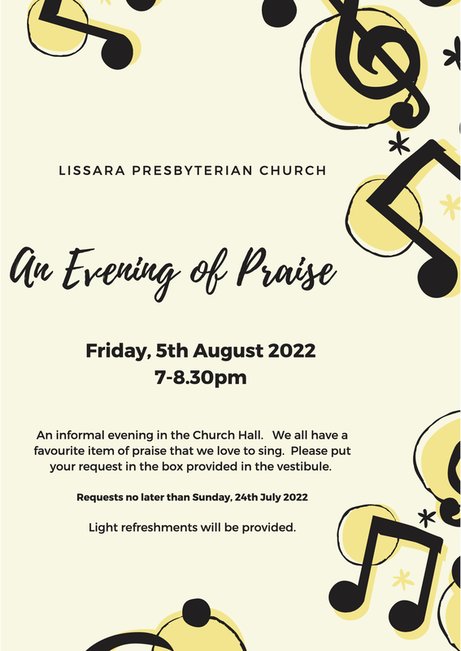 Hi everyone, Many of you are aware that on Friday, 5th August 2022 we are having an evening of Praise from 7-8:30pm. Thank you for all of you who have made suggestions, in total we had 109 items suggested. Obviously we can't sing them all on one night. Therefore we have chosen for this time 6 from our regulars, 8 new items some of which we have sung before, and 8 oldies that we haven't sung in a while. There are two from the 'new items' list that I want to make you aware of, so that you have an idea of what they sound like and can join in. They are 'Saviour of Sinners' (Greg de Blieck) and Ancient of days (CityAlight). If you click on the names of the song you will be taken to a link where you can watch them. Hope to see you on Friday 5th!! Alan Today we are focusing on Mark 6:45-56, here are a few links to an article and some books to help you when you pray.
Link https://www.ligonier.org/learn/articles/simple-acrostic-prayer Books, Evangelical book shop https://evangelicalbookshop.co.uk/product/the-prayer-of-the-lord https://evangelicalbookshop.co.uk/product/the-valley-of-vision/ - when you don’t know what to say |
Lissara Presbyterian
|


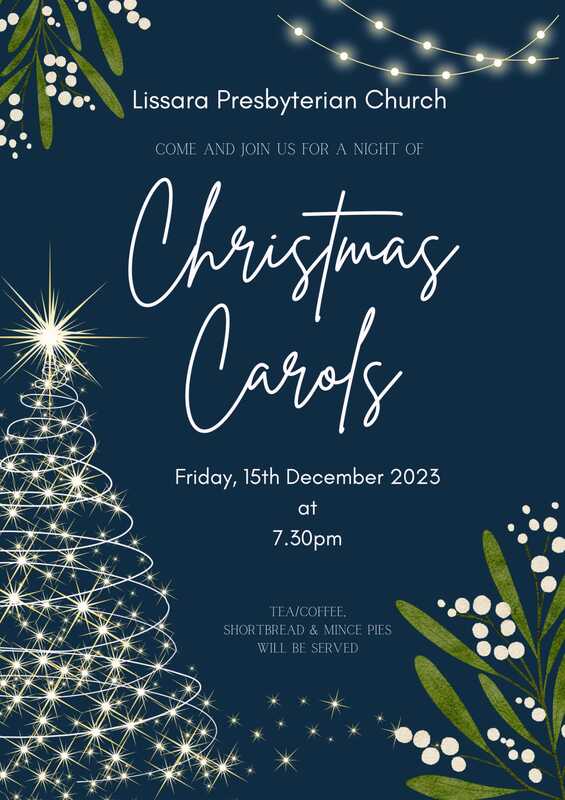
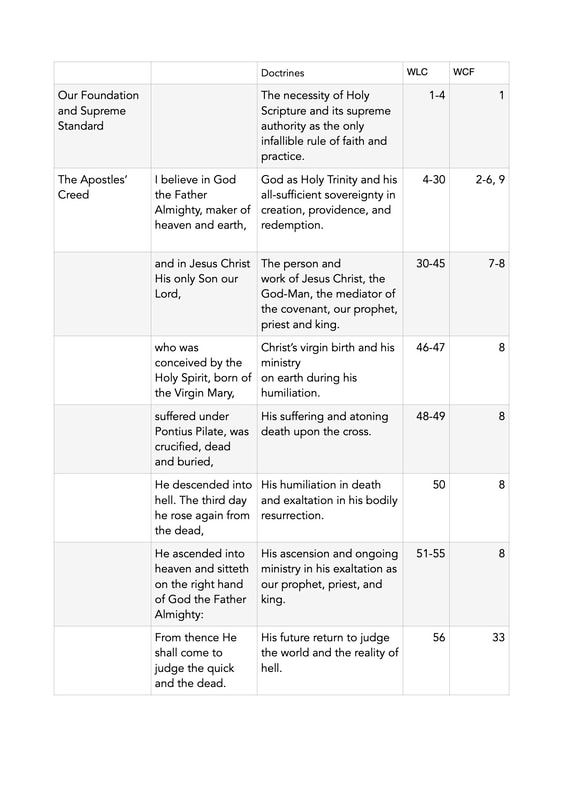
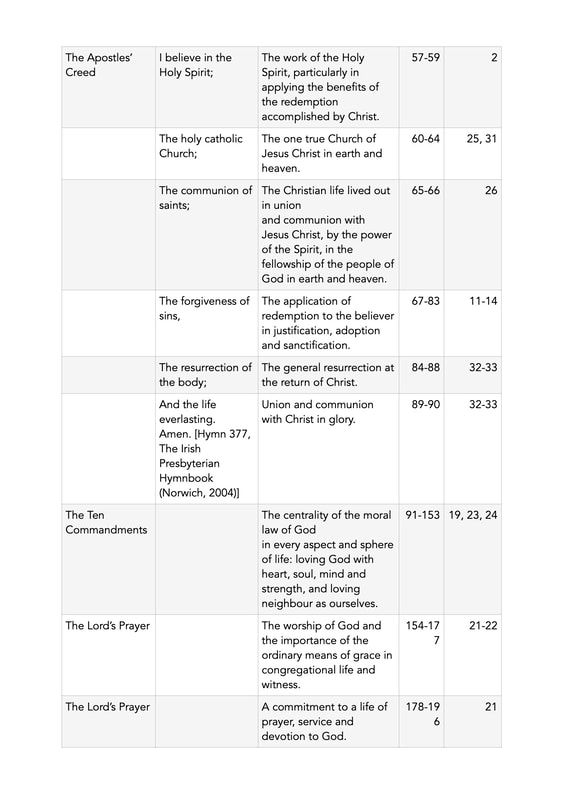
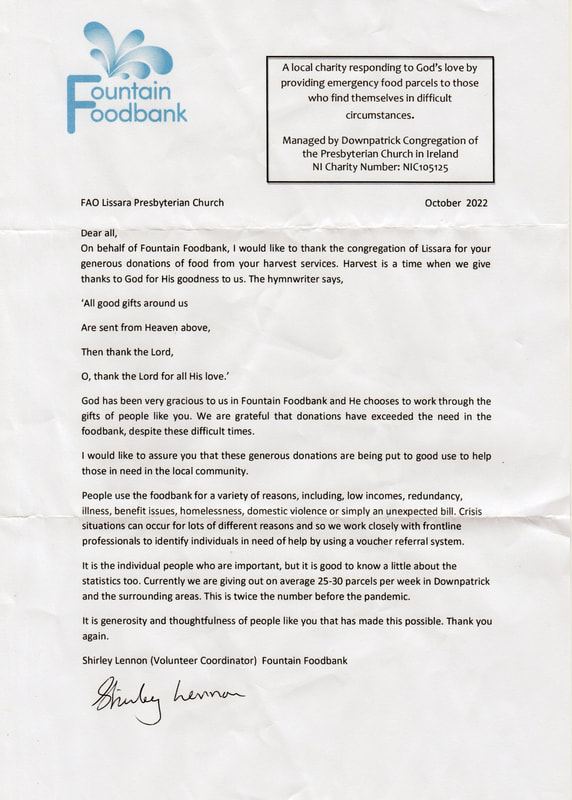
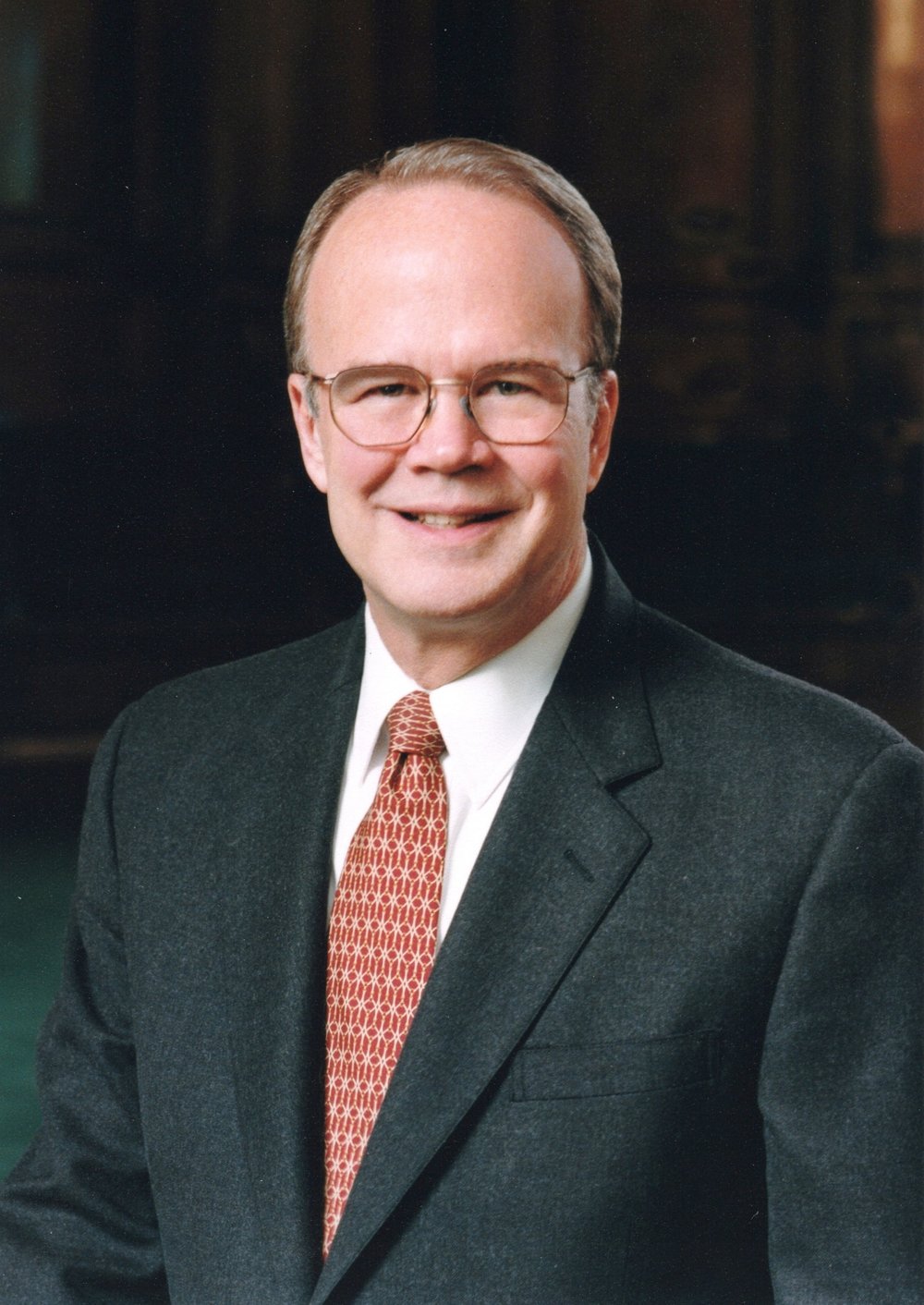

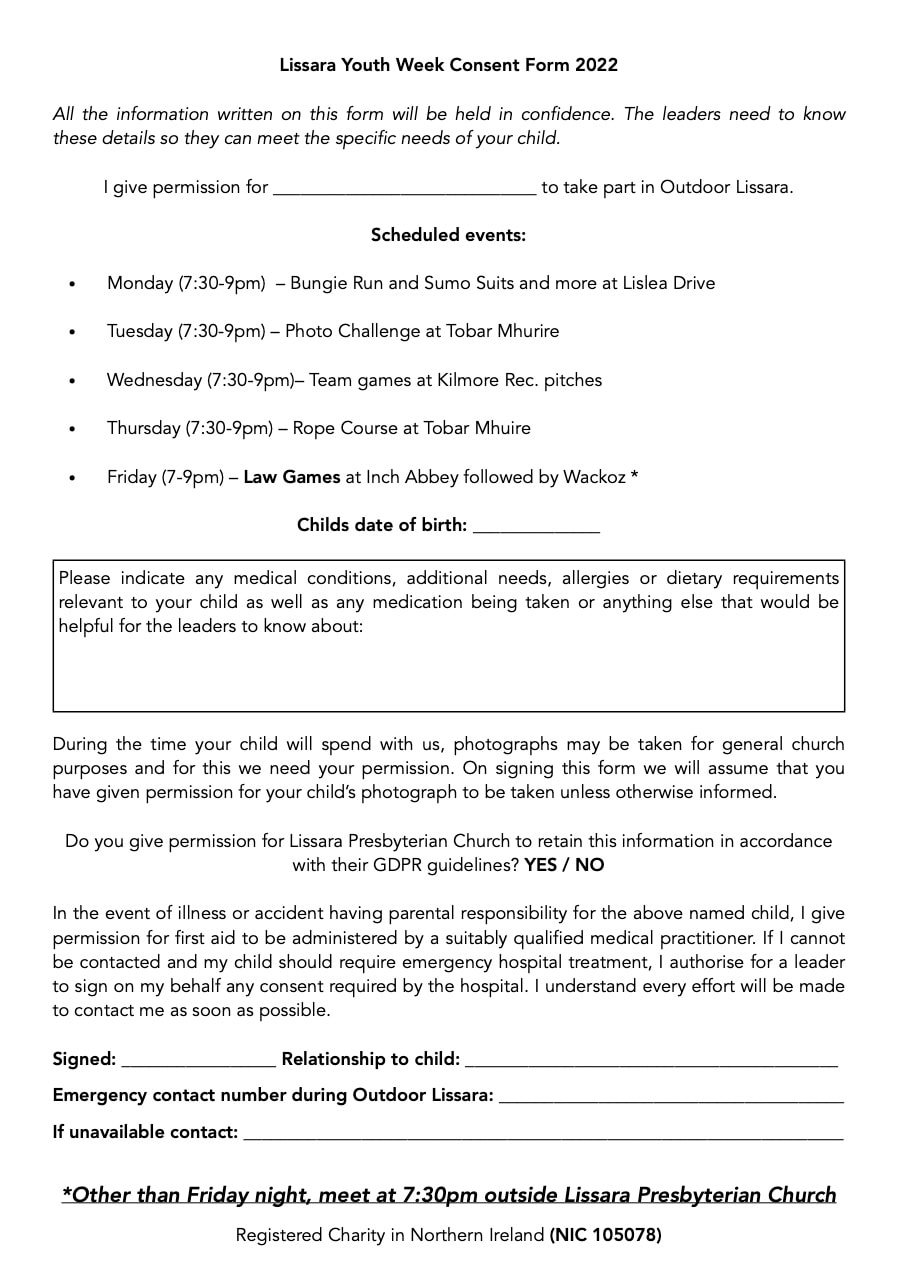

 RSS Feed
RSS Feed